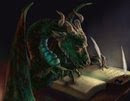I had the interesting and somewhat humbling experience recently, as I cruise into the final stretch of creating a new novel and the first book of a new series, of going back and re-reading (or at least re-skimming) the first one I ever published. The occasion was the publication at Smashwords and Amazon of a one-volume e-book edition of the Star Mages trilogy, called (appropriately enough) The Star Mages.
(You can find The Star Mages at Amazon or at Smashwords at these links, by the way. Same price, $4.99, either source.)
So anyway, I have this nifty new all-in-one edition of the trilogy and so I took a look at it to see how it would appear in a Kindle, a Nook, or a Sony Reader (I have all three in the PC software versions). In doing so, I noticed that The Stairway to Nowhere, which is the first book of the trilogy, is not as well written as The Green Stone Tower, which is my new work in progress, or as the second and third books of the trilogy itself. There are places where Stairway comes off to me as a bit clumsy, not in its plot development or characterization but simply in the writing style, compared to what I can do now.
This was somewhat embarrassing but probably shouldn't be. Stairway isn't the first novel I ever wrote. (The first one I ever wrote is called A Tale of Metal, Mind and Feather and it's sitting on a hard drive unpublished. Maybe someday, with a LOT of revision.) But it is the first one I ever published, and quite honestly, it shows.
A lot of people have told me that some of the fantasy elements of The Star Mages remind them of Roger Zelazny's Amber series, with the multiple worlds and the polarity between two opposing forces. There's another resemblance in my opinion. The first book of Zelazny's series, Nine Princes in Amber, is quite clumsily written compared to all of the subsequent books. Nine Princes was not Zelazny's first published novel, but still suffered from a certain awkwardness of style that did not afflict the sequels to nearly the same degree.
All of this points up a piece of advice for writers that is really quite obvious but that doesn't get a whole lot of bandwidth. You can take classes in college. You can attend writers' groups and writers' workshops and writers' retreats. You can get advice from other writers, publishers, agents, and editors. All of that may be useful to a degree. But the best way to learn to write is to do it. There is simply no training, no education, no advice that carries the same learning potential as putting fingers to the keyboard and having the words appear on the screen and be saved to disk -- LOTS of words. Thousands and thousands of them.
Your first efforts are going to be crap. That's an unavoidable fact. If you have it in you to do this, eventually, in the process of writing a whole lot of crap, you should reach a point where you begin to write non-crap. And then, hopefully, something that's actually pretty decent. And eventually, if you keep at it -- something good. Or really good. I'm still trying to get to that point, but I like to think I've hit the non-crap point and maybe even the pretty decent point.
But you have to write the crap first. There are no shortcuts.
Thursday, May 24, 2012
Subscribe to:
Post Comments (Atom)

No comments:
Post a Comment